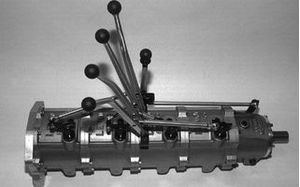Subaru Ascent SUVs Recalled for Transmission Malfunction
Subaru has issued a second recall in two days, this
time the compulsory measure is caused by a possible transmission malfunction in
the 2019 Subaru Ascent. Earlier, the automaker announced a recall of several
other models because of a faulty PCV valve leading to the engine failure.
According to NHTSA, the transmission-related
case includes 76,842 Ascent vehicles. This is the overall number of 2019 models
made since it launched manufacturing in 2018 at the U.S. facility in Indiana.
The new Ascent is produced only for the North American market and is nowhere
else in the world.
The automaker claims that the problem stems
from the hydraulic sensor that may do inexact measuring of the fluid pressure,
resulting in slippages in the CVT unit. The slippage problem triggers the
appearance of several alarming symptoms (delays or vibrations) and/or check
engine light. If this problem is not addressed at the right time, the vehicle
may be exposed to losses of power, increasing the possibility of a car accident.
The automaker assumes that all 2019 Ascents are prone to this flaw. Subaru knows about hundreds of complaints that mentioned this issue. At the same time, Subaru has no information on any cases involving road accidents or injury as a result of this transmission issue. Despite the fact that early warning cues seem to be easily noticeable by the car occupants before significant losses in performance capacity, as a precaution, Subaru chose to play safe and issued a non-mandatory safety recall.
Useful tips for owners of Subaru Ascent regarding the transmission unit
The automaker will inform owners of recalled vehicles within two months’ time. At dealerships, professional technicians will reprogram the TCU units in defective transmissions. Moreover, it will be required to install a new sensor harness in some cars with specific error codes. Owners of recalled vehicles won’t be charged for any services to be performed. The actual recall procedure is scheduled for the end of January 2020.








